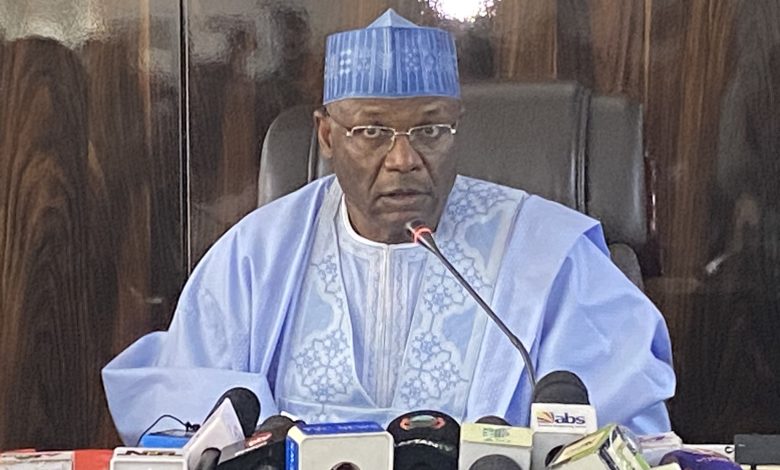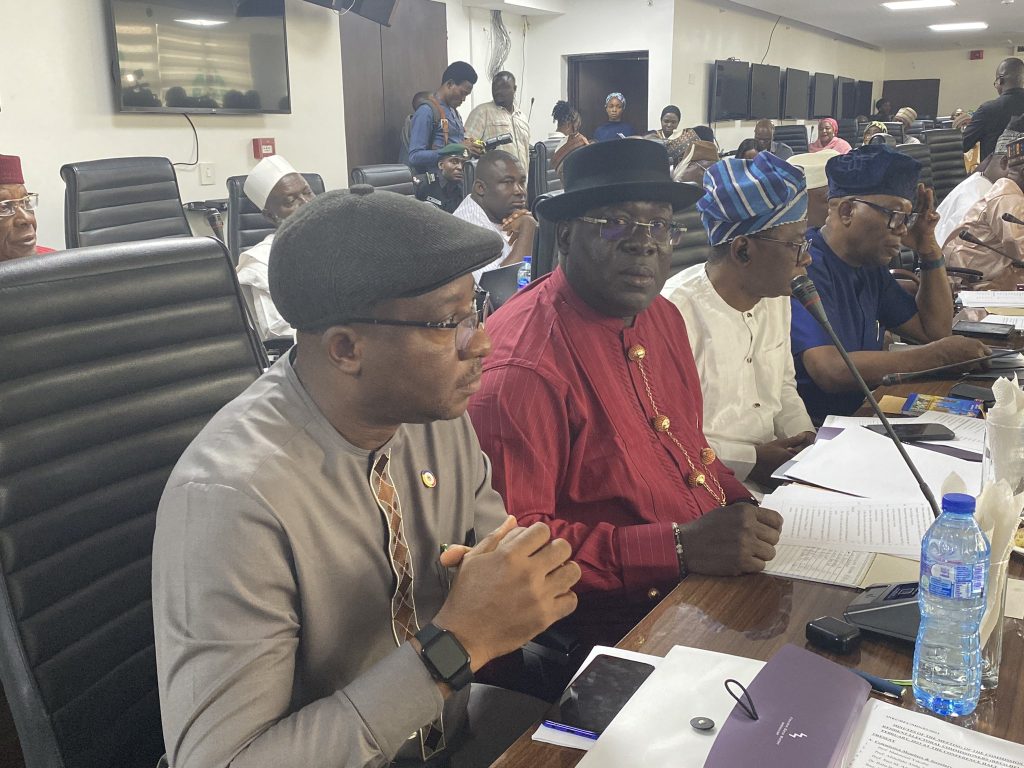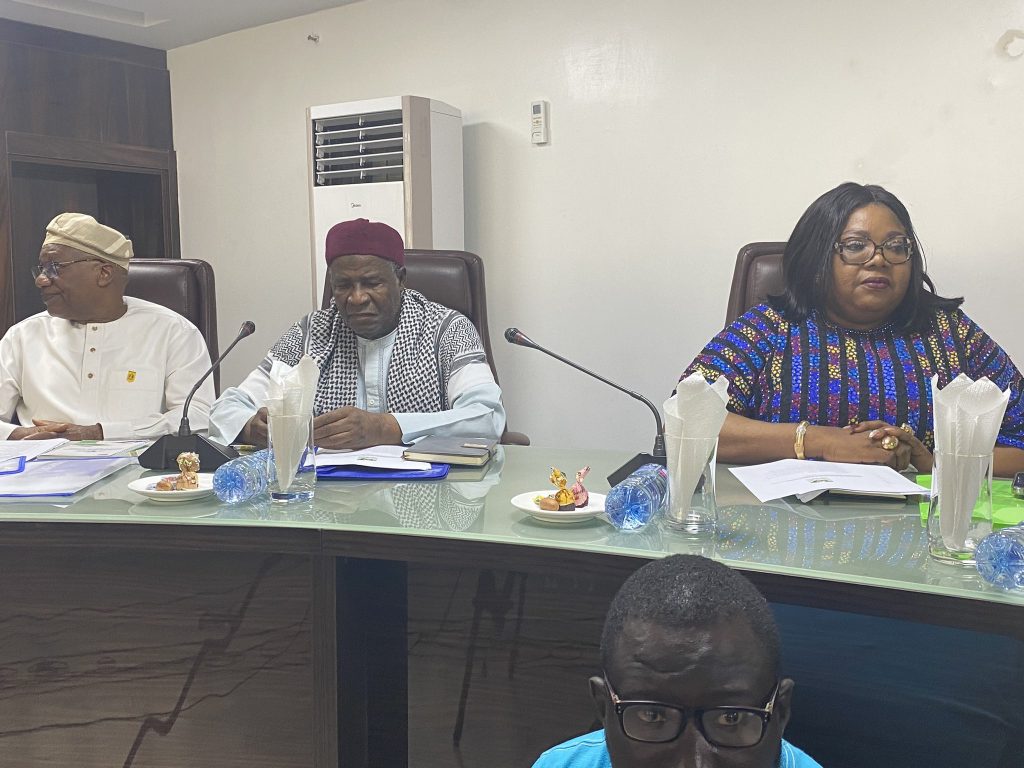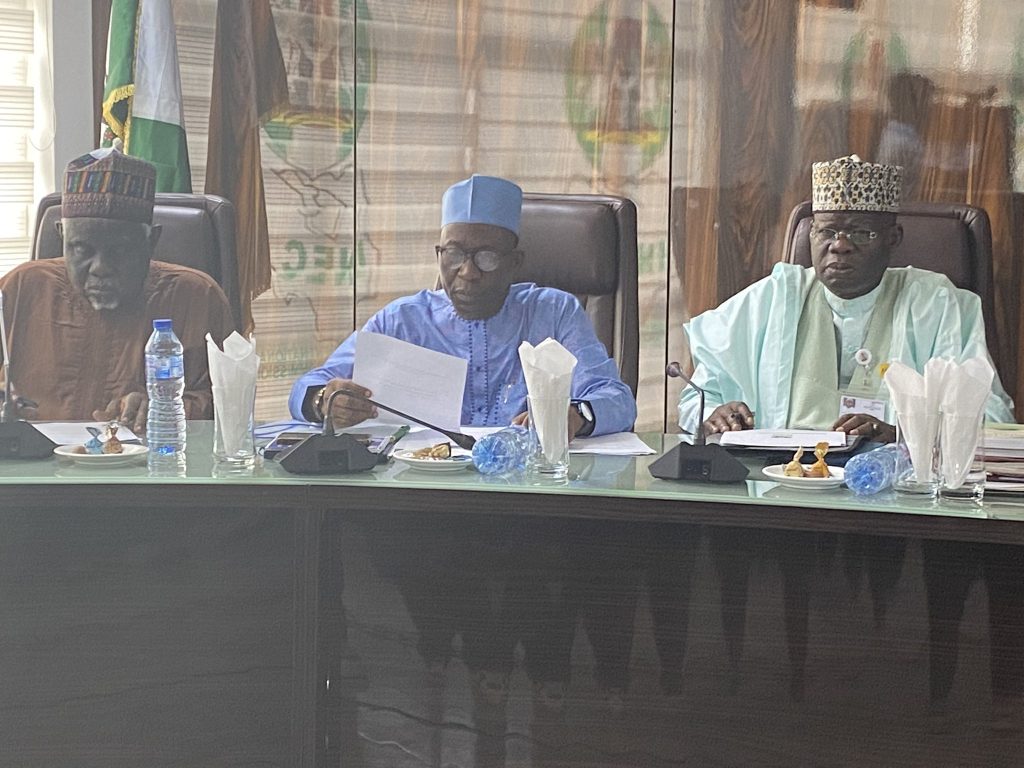
Details have emerged on the discussion between Professor Mahmood Yakubu, Chairman of the Independent National Electoral Commission (INEC), and the Resident Electoral Commissioners (RECs) during a meeting at the commission’s headquarters in Abuja earlier today.
POLITICS NIGERIA reports that the meeting marked Professor Yakubu’s first major public appearance since declaring President Bola Tinubu as the winner of the contentious February 25th, 2023, presidential election.
During the meeting, INEC Chairman Mahmood Yakubu announced that the commission is ready to prosecute the Adamawa State Resident Electoral Commissioner and 215 other individuals whose case files have been submitted by the police.
He confirmed that INEC has received the case files after the police completed their investigation, and he emphasised that the commission is collaborating with the Nigerian Bar Association (NBA) in the pursuit of prosecution.
Moreover, Professor Yakubu mentioned the ongoing collaboration between INEC and the Economic and Financial Crimes Commission (EFCC) to prosecute those involved in vote buying.
Regarding legal support, Professor Yakubu highlighted that approximately 427 lawyers have volunteered under the NBA to prosecute the suspects pro bono. Despite varying opinions on the 2023 general elections, he remained resolute in stating that they were a resounding success.
He elaborated, saying, “Our records show that these elections have produced the most diverse outcomes ever recorded since 1999. Today, five political parties produced state governors, seven parties won senatorial seats, eight are represented in the House of Representatives, and nine in State Houses of Assembly.”
Additionally, he underscored the effectiveness of the Bimodal Voter Accreditation System (BVAS) in accrediting voters, pointing out that its success rate stood at an impressive 98% compared to the 29.2% achieved by the Smart Card Reader during the 2019 General Election.
The meeting between the INEC Chairman and the RECs marked the beginning of several internal debriefing sessions, which will culminate in engagements with various stakeholders.
Professor Yakubu urged the Resident Electoral Commissioners, as senior officials of the Commission, to engage in frank and constructive discussions covering all aspects of the election, from preparations to conduct and aftermath.
He specifically mentioned the importance of addressing operational processes for the Continuous Voter Registration (CVR) and general elections, the legal framework for elections, the effectiveness of deployed technologies, administrative procedures and channels, political party registration and primaries, and the recruitment and performance of ad-hoc staff, among other areas.
Furthermore, he emphasised the need to strengthen the Commission’s cooperation and relations with other bodies such as government ministries, departments, and agencies (MDAs) and non-governmental organisations (NGOs).
He said the outcomes of these discussions will be compiled into a comprehensive report to enhance future elections in the country.
He said:
“Our record shows that these elections have produced the most diverse outcomes ever recorded since 1999. Today, five political parties produced State Governors, seven parties won Senatorial seats, eight are represented in the House of Representatives and nine in State Houses of Assembly.
“Clearly, the 10th National Assembly is certainly the most diverse in party representation since 1999. In some States around the country, different political parties controlled the legislative and executive arms of Government. What is clear from these records also is that the days of single party dominance of our national politics are probably gone. Furthermore, many prominent candidates lost in the constituencies they contested, and political parties lost in some of their presumed strongholds”.
” Accreditation of voters using the Bimodal Voter Accreditation System (BVAS) has generally been scored very high by voters. Our records show that the success rate for BVAS accreditation stands at 98% compared to the Smart Card Reader’s 29.2% during the 2019 General Election” he stressed.
“We are working with the Nigerian Bar Association (NBA) to prosecute the alleged offenders. Already, the NBA has submitted a list of 427 lawyers across the country who have volunteered to render pro bono services to the Commission.
“They are not charging legal fees but by mutual agreement the Commission will provide a token amount to cover for filing fees/expenses. We are most grateful to NBA and its President, Yakubu Maikyau SAN, for this historic collaboration.
” Similarly, we are working with the Economic and Financial Crimes Commission (EFCC) and the Independent Corrupt Practices Commission (ICPC) on the prosecution of cases relating to vote buying and associated violations”.
The INEC boss said the meeting of the RECs was the first of “several internal debriefing meetings ” thay will culminate in engagements with stakeholders.
“I implore the Resident Electoral Commissioners, as senior officials of the Commission, to lead the discussion on all aspects of the election from preparations, conduct and aftermath frankly and constructively. Among other issues, I expect you to cover such specific areas as:
“Operational processes for the Continuous Voter Registration (CVR) and general elections, including planning, organisation, coordination and evaluation of activities, focusing particularly on such specific issues as the issuance of voters’ cards, logistics, delivery of materials, deployment of personnel, etc.;
“Legal framework for the conduct of elections with a view to addressing any key legal challenges that may have arisen prior to the 2023 General Election which were not envisaged before the election;
“Technologies deployed in the electoral process, including the INEC Voter Enrolment Device (IVED); INEC Result Viewing Portal (IReV); Bimodal Voter Accreditation System (BVAS); party nomination portal; observer, media and polling/collation agents’ accreditation portals etc., focusing particularly on their performance;
“Effectiveness of overall administrative procedures and channels within the Commission in the coordination and execution of pre-election, election and post-election activities;
“Political party registration, party primaries and nomination of candidates for the 2023 General Election, as well as monitoring of the process
“Process of recruitment, training, deployment and performance of all categories of ad-hoc staff during CVR and the General Election; and
“Strengthening the Commission’s cooperation and relations with other bodies such as MDAs, NGOs etc. and any other issues in the electoral process that are likely to impact the work of the Commission in the future amongst other recommendations.”



